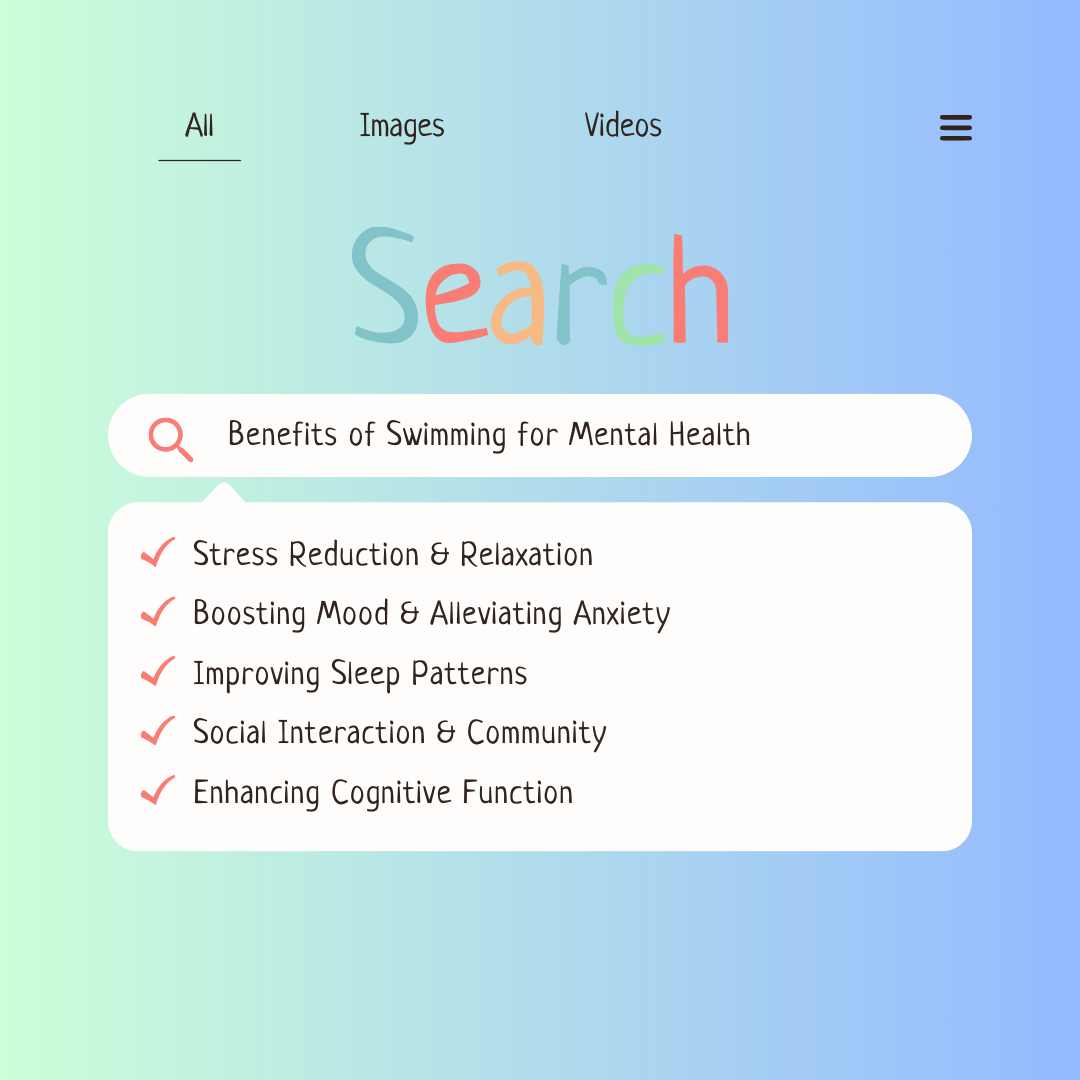Swimming is often lauded for its physical health benefits, from building muscle to improving cardiovascular health. However, its positive impact on mental health is equally noteworthy. This blog will delve into the various ways swimming can enhance mental well-being, providing both immediate relief and long-term benefits.
Stress Reduction and Relaxation
Swimming is a powerful stress reliever. The rhythmic nature of swimming, combined with the soothing effects of water, can help to calm the mind. The repetitive strokes and breathing patterns required in swimming create a meditative state, allowing swimmers to disconnect from everyday stressors. This form of exercise triggers the release of endorphins, the body's natural stress relievers, which help to enhance mood and provide a sense of well-being.
Boosting Mood and Alleviating Anxiety
Regular swimming has been shown to reduce symptoms of anxiety and depression. The endorphin release that occurs during swimming is similar to what is experienced during other forms of exercise, often referred to as the "runner's high." These endorphins act as natural mood lifters. Additionally, swimming can reduce the levels of cortisol, a hormone linked to stress and anxiety.
Improving Sleep Patterns
Quality sleep is essential for mental health, and swimming can contribute significantly to better sleep patterns. The physical exertion from swimming helps to tire the body, making it easier to fall asleep and stay asleep. Improved sleep quality can reduce symptoms of depression and anxiety, contributing to overall mental well-being.
Social Interaction and Community
Swimming can also provide social benefits, particularly when done in group settings like swim classes, clubs, or community pools. Engaging with others in a social setting can reduce feelings of isolation and loneliness, which are common contributors to poor mental health. Building a supportive network through swimming can enhance social well-being and provide a sense of belonging.
Enhancing Cognitive Function
Regular physical activity, including swimming, has been linked to improved cognitive function. Swimming increases blood flow to the brain, which can enhance memory, concentration, and cognitive abilities. This is particularly beneficial for older adults, as it can help to maintain cognitive health and reduce the risk of cognitive decline.
Building Resilience and Confidence
Learning to swim or improving swimming skills can build resilience and boost self-esteem. The sense of achievement that comes with mastering a new skill or reaching a swimming milestone can be incredibly empowering. This boost in confidence can translate to other areas of life, helping individuals to cope better with challenges and stressors.
Creating a Routine
Incorporating swimming into a regular routine can provide structure and a sense of purpose. This is especially beneficial for individuals struggling with mental health issues, as it encourages discipline and provides a healthy outlet for coping with stress. Regular exercise routines are known to contribute to overall mental stability and well-being.
Conclusion
Swimming is more than just a physical workout; it is a holistic activity that benefits the mind and body. By reducing stress, improving mood, enhancing sleep, fostering social connections, boosting cognitive function, building resilience, and providing routine, swimming can significantly improve mental health. Whether you're a seasoned swimmer or just starting, making swimming a part of your regular routine can lead to a healthier, happier mind.
For more tips on incorporating swimming into your fitness regimen, check out our H2O Audio blog for additional resources and product recommendations to enhance your swimming experience.





Share:
Dive Into August with H2O Audio: The Ultimate Playlist for Summer Vibes
Why Triathletes should train open water?